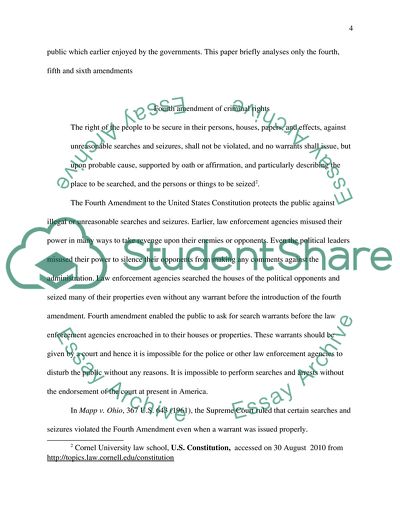Cite this document
(United Sates Bill of Rights 4th, 5th, and 6th Amendment Criminal Term Paper, n.d.)
United Sates Bill of Rights 4th, 5th, and 6th Amendment Criminal Term Paper. Retrieved from https://studentshare.org/law/1569709-4th-5th-6th-amendment-criminal-rights
United Sates Bill of Rights 4th, 5th, and 6th Amendment Criminal Term Paper. Retrieved from https://studentshare.org/law/1569709-4th-5th-6th-amendment-criminal-rights
(United Sates Bill of Rights 4th, 5th, and 6th Amendment Criminal Term Paper)
United Sates Bill of Rights 4th, 5th, and 6th Amendment Criminal Term Paper. https://studentshare.org/law/1569709-4th-5th-6th-amendment-criminal-rights.
United Sates Bill of Rights 4th, 5th, and 6th Amendment Criminal Term Paper. https://studentshare.org/law/1569709-4th-5th-6th-amendment-criminal-rights.
“United Sates Bill of Rights 4th, 5th, and 6th Amendment Criminal Term Paper”. https://studentshare.org/law/1569709-4th-5th-6th-amendment-criminal-rights.


